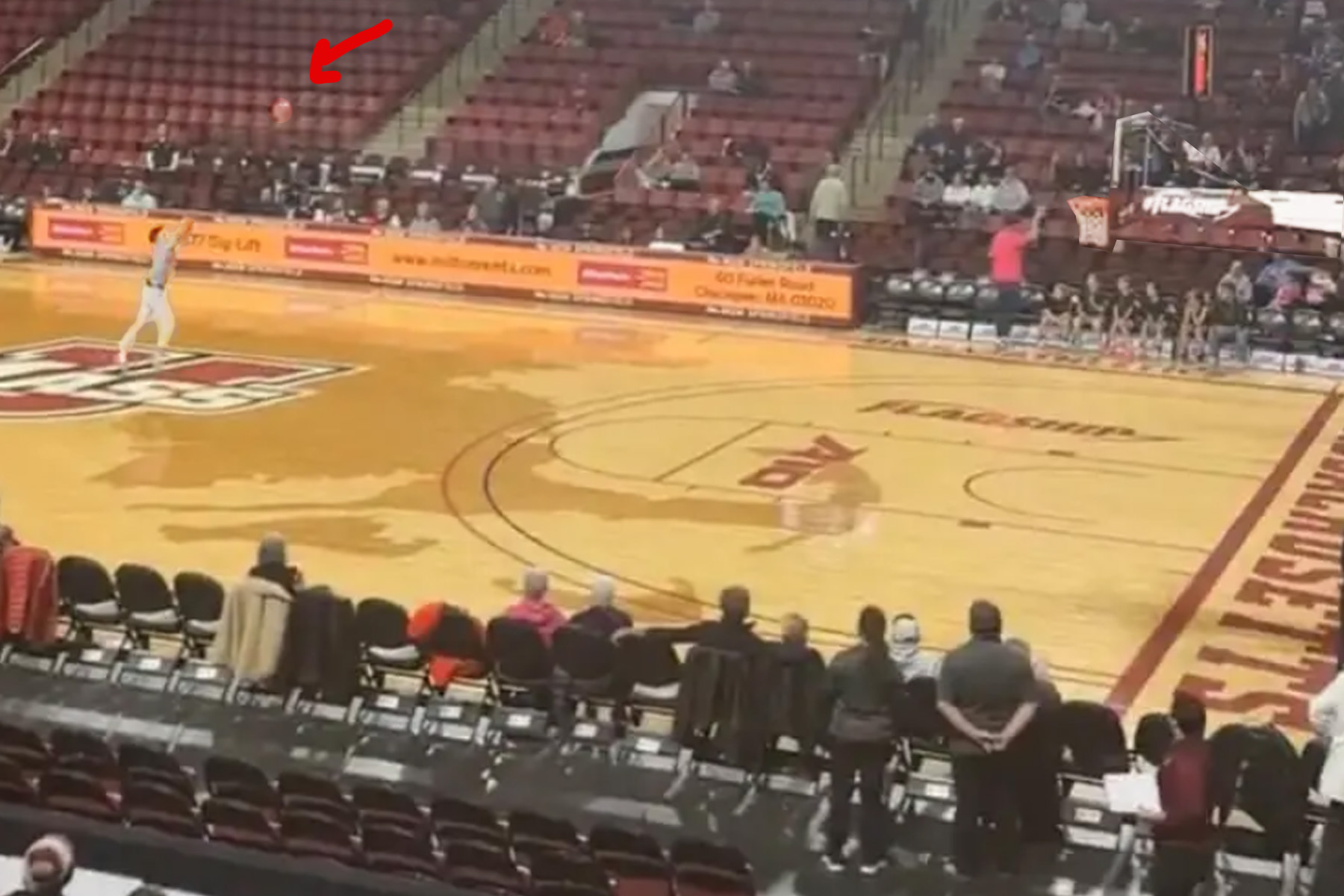What should have been a moment of celebration at a UMass women’s basketball game has instead sparked a heated debate. On Wednesday night, a fan named Noah was randomly selected to take on a popular basketball challenge: make a layup, a free throw, a three-pointer, and a half-court shot within 30 seconds to win $10,000.
To the amazement of the crowd, Noah executed each shot flawlessly, including the crucial half-court shot. The arena erupted in celebration, only for the mood to shift dramatically when Odds On Promotions, UMass’s insurance provider for promotional contests, denied the payout.
The reason? Noah’s foot was allegedly touching the half-court line when he made the shot. The rules never explicitly stated that touching the line would invalidate the attempt, and the contest’s announcers never informed him of such a restriction. The decision has sparked outrage among fans, many of whom believe the shot should count as long as the player’s entire foot isn’t past the line.
Déjà Vu: The Million-Dollar Shot That Almost Went Unpaid
Noah’s story eerily mirrors one of the most infamous contest controversies in sports history: Don Calhoun’s 1993 million-dollar shot during a Chicago Bulls game. Calhoun, a 23-year-old fan, was randomly chosen to attempt an 80-foot three-quarters court shot. Against all odds, he made it, sending Chicago Stadium into chaos.
However, the joy was short-lived. The insurance company responsible for the prize discovered that Calhoun had played organized basketball for Triton Community College three years prior, violating a contest rule that disqualified anyone who had played within the past five years. Despite Calhoun honestly disclosing this information on his entry form, the insurance company refused to pay.
The Role of Insurance Companies in Contest Payouts
Both cases highlight a recurring issue with promotional contests: insurance companies are often reluctant to pay when the stakes are high. UMass, like the Chicago Bulls in 1993, had purchased insurance to cover the potential payout. However, these companies frequently use technicalities to deny winnings, as seen with both Noah and Calhoun.
While UMass itself isn’t directly responsible for paying Noah, they did offer him a compensation package valued at approximately $500—an amount that many feel is an insult given his legitimate victory. Similarly, in Calhoun’s case, the Bulls initially went along with the insurance company’s refusal before public pressure forced a reversal.
Michael Jordan’s Intervention and the Power of Public Pressure
Calhoun’s story had a surprising twist that might provide a blueprint for Noah’s case. Public backlash against the denied payout grew quickly, and within a week, the Bulls organization announced they would honor the prize. The true reason for the reversal remained unknown until a year later when Calhoun encountered Michael Jordan. When Calhoun approached Jordan for an autograph, Jordan instead asked, “Did you get your money?” It was then revealed that Jordan and his teammates had pressured Bulls ownership into paying the full amount out of their own pockets.
Jordan’s intervention turned what could have been a story of corporate greed into one of fairness and justice. Without his advocacy, Calhoun might have walked away with nothing.
Will UMass Follow the Bulls’ Example?
Noah’s situation now hangs in the balance. Public pressure is mounting, and fans are demanding that UMass step up and either fight the insurance company’s ruling or cover the prize themselves. In 1993, it took the influence of Michael Jordan and the Bulls’ players to right a wrong. Will UMass find its own hero to do the same?
While Noah’s $10,000 is a fraction of Calhoun’s million-dollar prize, the principle remains the same: if a contestant wins fairly in the eyes of the audience, technicalities shouldn’t be used as a loophole to deny them their rightful earnings.
MY FRIEND JUST DID THIS FOR $10k AT THE @UMassWBB GAME!!!#SCtop10 pic.twitter.com/czpu4jSNXf
— Josh Schreiber (@Jschreiber272) February 6, 2025


